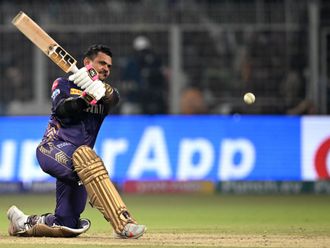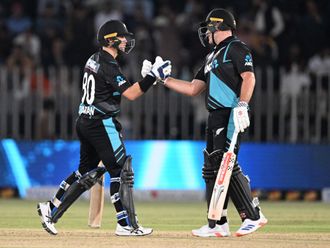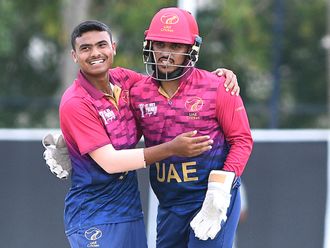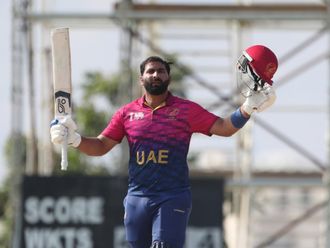Dubai: Players’ safety is expected to be one of the major topics of discussion during the International Cricket Council (ICC) meetings, which commenced on Sunday at it’s headquarters here.
The modification to helmets, according to minimum medical standards, is being debated following the shocking death of Australian batsman Phil Hughes who was hit by a bouncer in a domestic game in November. A lot of changes in the making of the helmet is likely to be recommended not only to protect the neck but also to make sure that the ball does not slip through the faceguard and peak and hit any part of the face.
N. Srinivasan, the chairman of ICC will arrive only today (Monday) in time for the board meetings on January 28-29 though the Chief Executive Committee meeting began yesterday with David Richardson, ICC Chief Executive as chairman. Emirates Cricket Board’s Chief Executive David East attended the meeting as one of the three Associate Member Representatives. Anil Kumble, the ICC Cricket Committee Chairman is also attending the Chief Executive meeting. The latest updates on illegal bowling actions will be announced on January 29.
Pakistan off spinner Saeed Ajmal underwent bowling tests at the accredited testing centre for suspect actions at Sri Ramachandra University in Chennai on Friday. According to information, the test results have been forwarded to the ICC’s Bowling Review Group (BRG) and if he fails again BRG will specify the period during which Ajmal will not be entitled to approach the ICC for reassessment. It is understood that while delivering the Doosra he is extending the arm beyond the allowed 15-degree limit though all his other deliveries are within the limit.
The application of ICC Code of Conduct at the ICC Cricket World Cup will be discussed in light of some recent heated exchanges on the field by cricketers. Richardson had recently stressed on the need for players to remember their responsibilities to uphold the sport’s integrity at all times and that Umpires and Match Referees are to ensure that they are much more pro-active in terms of policing behaviour on the field and when players do over-step the mark.
Updates on anti-corruption and anti-doping matters will also be discussed. Pakistan pacer Mohammad Amir who was banned in the spot fixing case in England in 2010 may be allowed to return to first class cricket as ICC has revised the anti corruption code. A final decision on Amir’s appeal is expected to be taken in ICC Board meeting as Pakistan Cricket Board (PCB) has filed an appeal with the ICC to relax certain conditions of Amir’s ban.












